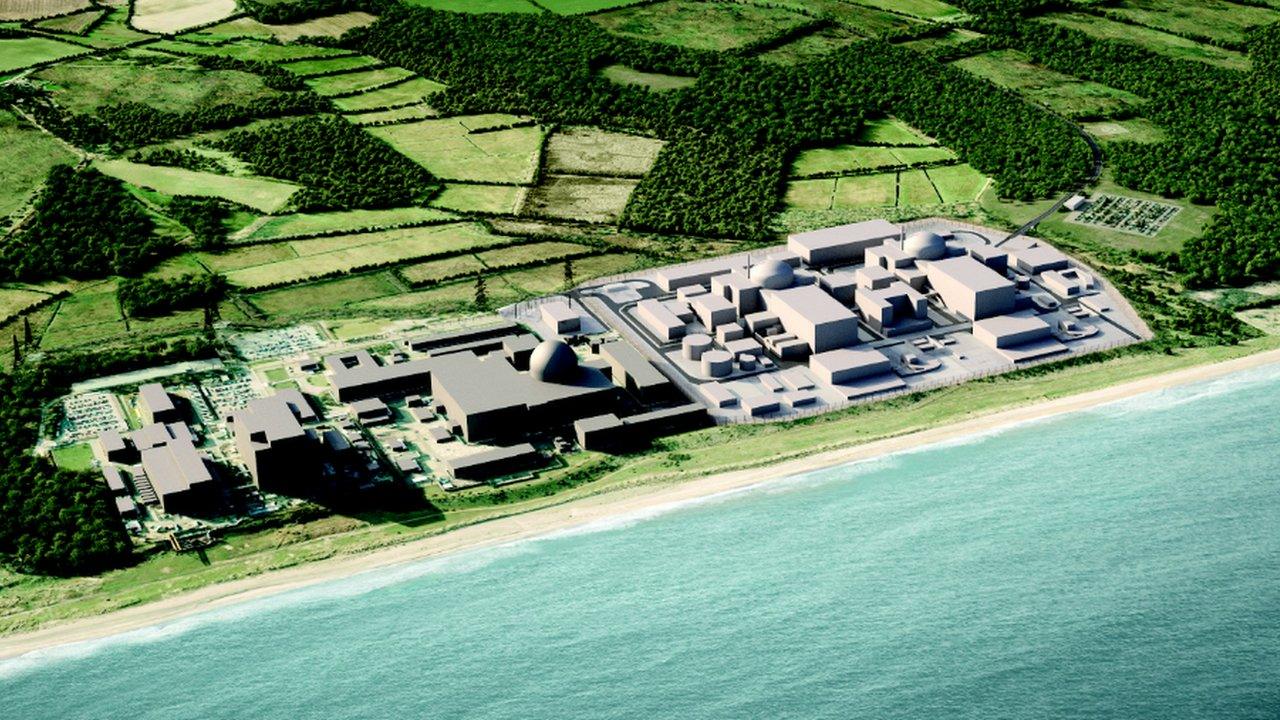UEA scientist says Sizewell C nuclear plant is outdated
- Published
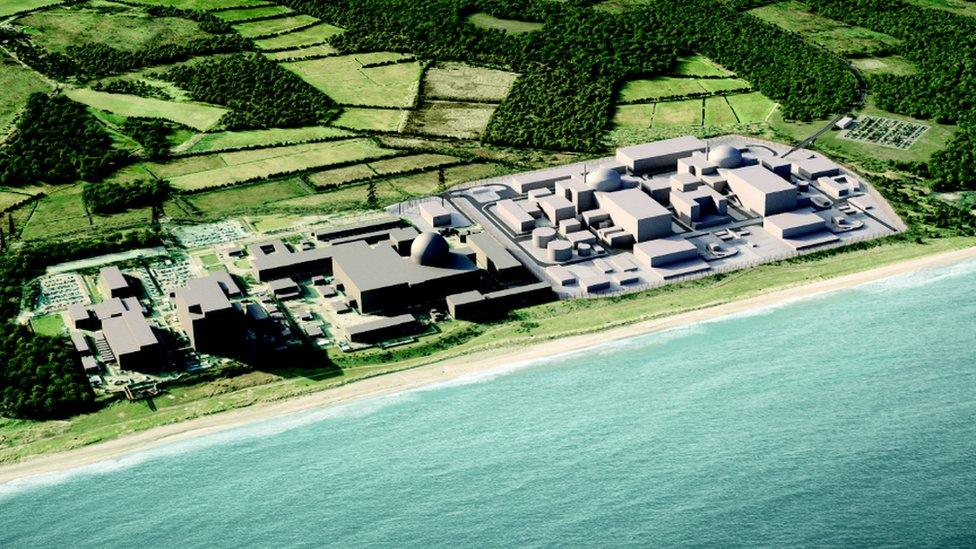
EDF said its proposed Sizewell C would provide electricity for six million homes and create 25,000 jobs
Nuclear power has become "outdated by technology" and offshore wind can produce power more quickly and cheaply, an energy scientist told the BBC.
Professor in energy and climate change Charlie Wilson said there was no longer a good case for a new £20bn Sizewell C plant on the Suffolk coast.
He said new ways to store wind turbine energy meant supplies could be maintained even in low winds.
EDF, the firm behind Sizewell C, said nuclear was key for UK energy needs.
The government said nuclear was vital for the "UK's low-carbon energy future".
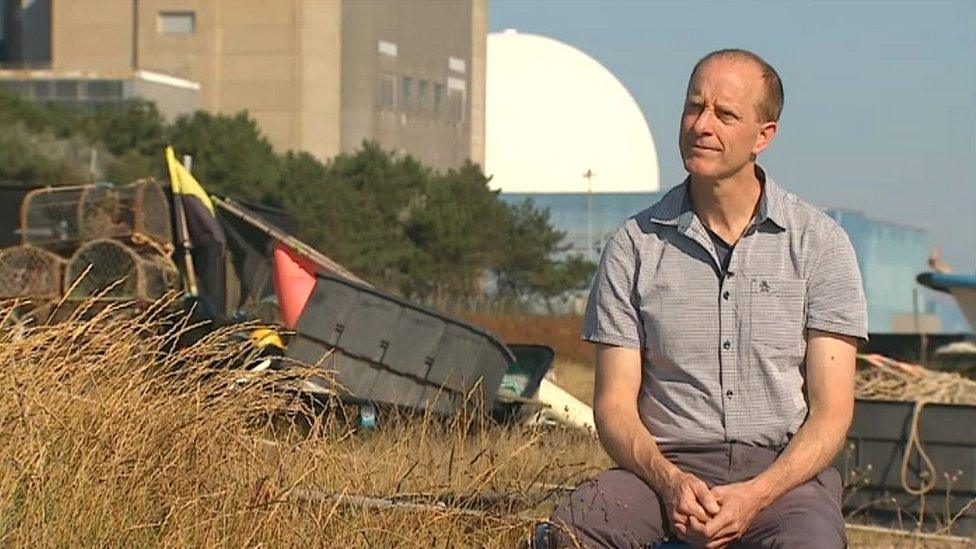
Prof Charlie Wilson said nuclear energy was extremely expensive
Prof Wilson, of the the Norwich-based Tyndall Centre for Climate Change Research at the University of East Anglia, said nuclear power cost twice as much as wind power.
Electricity generated by wind turbines costs about £40 per megawatt hour, compared to £92.50 which is the projected cost of the latest nuclear plant being built at Hinkley Point C in Somerset, he added.
He said in the past nuclear power was seen as key because in any weather it provides the same baseload power - baseload refers to the minimum amount of electric power needed to be supplied to the electrical grid at any given time.
"The view in the 1970s-1990s was that you needed this large firm baseload power generation like nuclear," he said.
"The game-changing technologies around storage and flexibility mean intermittent renewables - like large offshore wind farms - are now viable as a reliable generation source.
"We've seen in recent years phenomenal improvements in battery technologies which are now being deployed throughout the electricity system.
"We don't have enough, that's for sure. But we can scale that battery capacity rapidly unlike the nuclear capacity that takes decades to adopt and then build."
He said large nuclear plants like Sizewell C had become "outdated by technology".
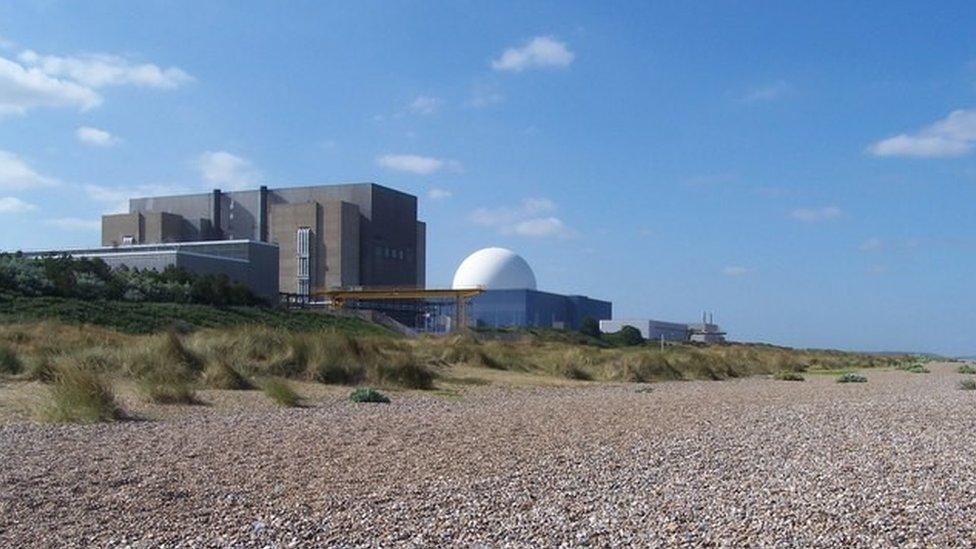
The planned new Sizewell C would be built next to the Sizewell A and B on the Suffolk coast
Julia Pyke, finance director for EDF Energy, said: "The really important point is we need nuclear. We've seen over the last few weeks the gas price spiking.
"We've seen some really low wind speeds. The wind industry in the UK has been a fantastic success, but you need nuclear to be there as a baseload."
She said the idea that wind energy and storage of its generated energy meant there was no need to build new nuclear plants was "a minority view".
A Department for Business, Energy and Industrial Strategy spokeswoman said: "The government has been holding commercial negotiations with EDF on the Sizewell C project since January.
"No decisions have been taken but negotiations to date have been positive.
"Nuclear power has a key role to play in the UK's low-carbon energy future and in ensuring we have a resilient energy system.
"We intend to approve at least one large-scale nuclear project in the next three years, which will support and create tens of thousands of jobs... building on a sector which already employs around 60,000 people in the UK."
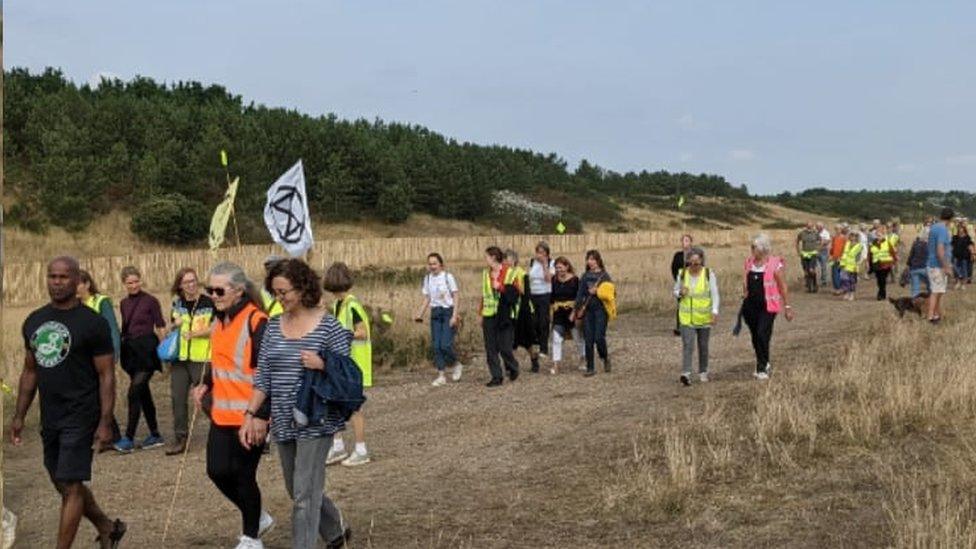
Opponents of nuclear power have said Sizewell C would be obsolete by the time it was built
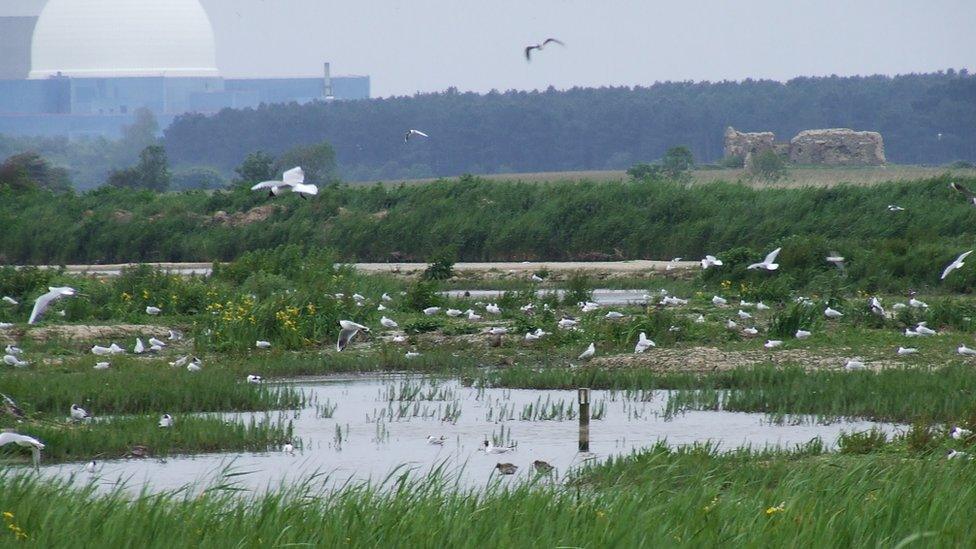
The RSPB, which runs the neighbouring Minsmere nature reserve, has voiced concerns about the effect of EDF's plans on wildlife habitats
EDF Energy has said Sizewell C would generate 3.2 gigawatts of electricity, enough to provide 7% of the UK's needs.
The developer also estimated it would create 5,000 to 8,000 local jobs during construction, which could take about nine years.
Politics East airs on BBC One in the East on Sunday 26 September at 10:00 BST and can be viewed on the BBC iPlayer afterwards.

Find BBC News: East of England on Facebook, external, Instagram, external and Twitter, external. If you have a story suggestion please email eastofenglandnews@bbc.co.uk
- Published18 May 2021

- Published14 December 2020

- Published14 December 2020
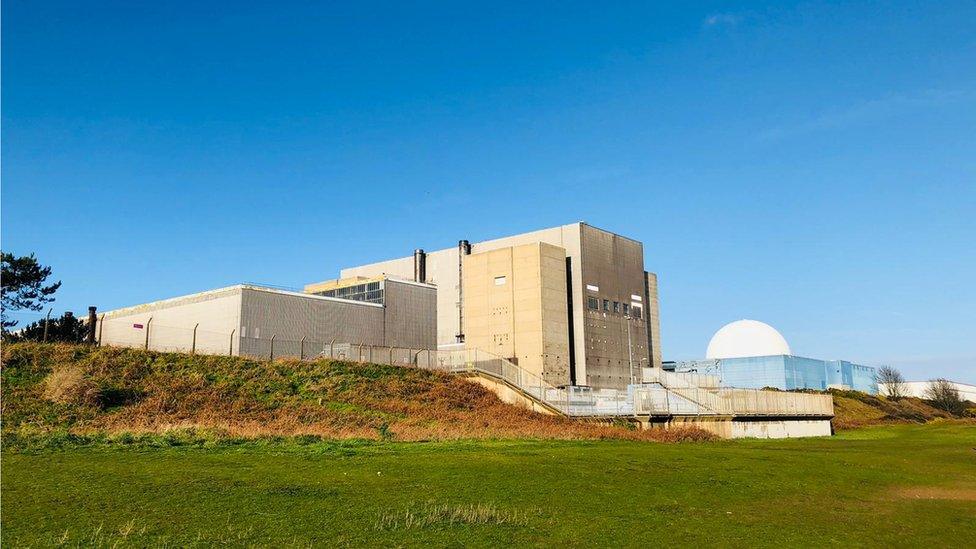
- Published22 January 2020

- Published4 January 2019

- Published21 November 2012
